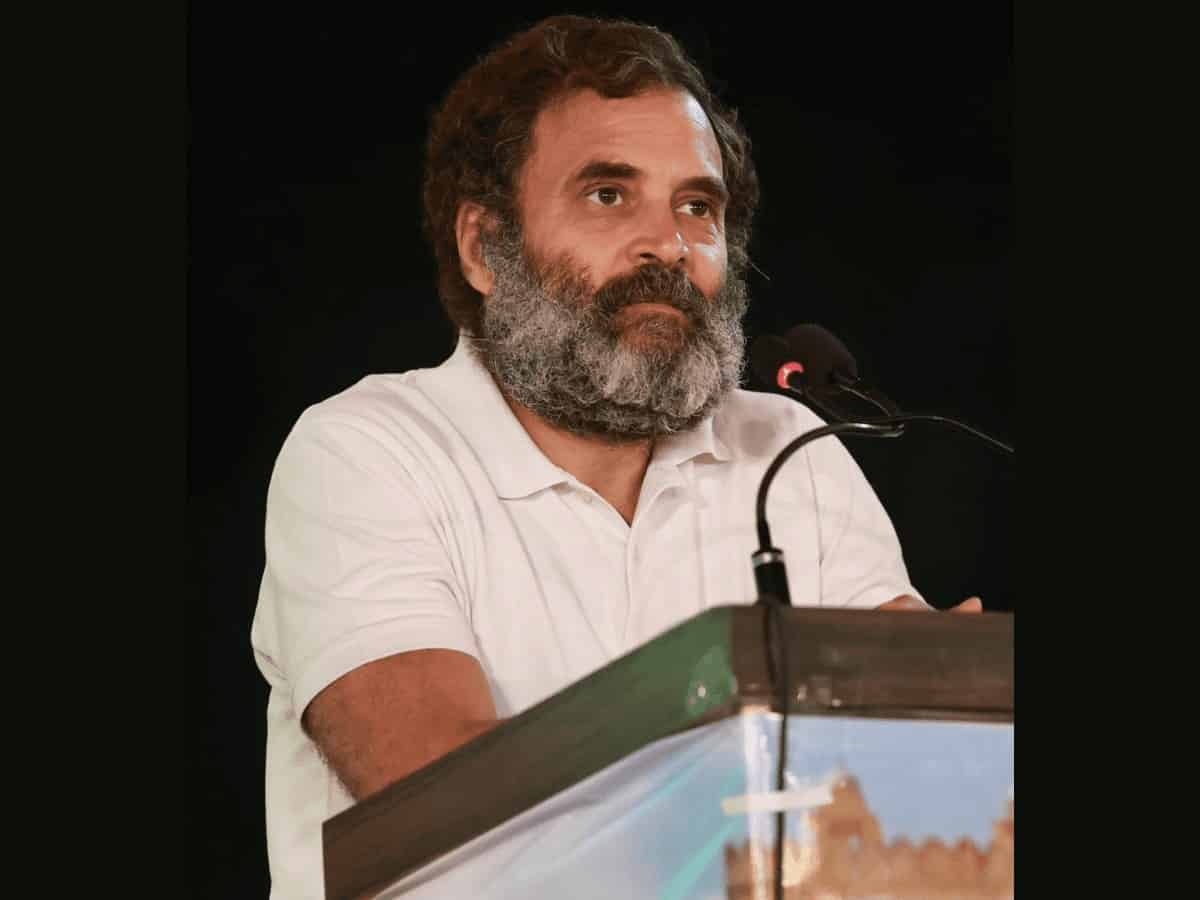
Rahul Gandhi, once and for all, has put a lid on the controversies related to the surgical strikes in the wake of the terror attacks by Pakistan sponsored terrorists in Jammu and Kashmir, as he snubbed his party’s senior leader Digvijay Singh’s statement questioning the surgical strikes. He denounced Digvijay Singh’s statement as “ ridiculous”, and added, “ I disagree with his statement.”
Digvijay Singh’s statement on Monday questioning the surgical strikes that were undertaken in the wake of the Uri and Pulwama terror attacks in 2016 and 2019 respectively, had created a stir. The Congress party was faced with barrage of questions on the issue .
By snubbing Digvijay Singh, Rahul Gandhi has vetoed all the leaders in the party who in their zealousness to counter Prime Minister Narendra Modi have been raising questions about the surgical strikes and claiming that there was no evidence of the surgical strikes or the damage caused by these strikes in Pakistan. He has cleared the air, and come out in support of the army’s actions, as he maintained, “ We support the army’s actions and don’t demand any proof .”
Rahul made these remarks, which fundamentally change the narrative on the surgical strikes, came at a press conference at Jhajjar Kotli enoute to his Bharat Jodo Yatra from Kanyakumari to Kashmir. He, in fact, has come out openly in support of the surgical strikes.
With this denunciation of statements made by Digvijay Singh , Rahul Gandhi has positioned himself as a leader for whom the national interest comes first. He, in a very clever way, stated that he supported the army, and never asked for proof, aligning himself with the valour of soldiers and their actions.
Two surgical strikes were mounted, one in September 2016, when Pakistani terrorists attacked army camp in the north-western Kashmir town of Uri, along the Line of Control, killing 20 soldiers. The soldiers had crossed the LoC and destroyed the terror camps. The second surgical strike was in retaliation to the February 14, 2019 terror attack in which 40 CRPF personnel were killed. In February 2019, Indian Air Force had crossed the international border and bombed the terror training camp in Balakot, Khyber Pakhtunkhwa, deep inside Pakistan.
The surgical strikes had altered India’s counter-terrorism approach. It was no longer defensive. It transformed into offensive – giving more than befitting reply to the acts of terror. The net result was that Pakistan could not mount any major terror attack in Jammu and Kashmir, or in the rest of the country, after these surgical strikes. Pakistan had become aware of the fact that there was punishment waiting for it if it ventured into acts of terror on Indian soil.
Politically, the nation had become confident that its leadership was capable of handling the tough situations with the toughness needed to counter terrorists and their mentors across the border. This also came into sharp comparison to the Indian government’s response in the wake of the 26/11 terror attack in Mumbai. The then UPA government led by Manmohan Singh was accused of inaction, as it did not take any action against Pakistan. Instead, it had entered into dialogue with Pakistan.
Rahul Gandhi, who was Congress General Secretary that time, also faces criticism because of the inaction of the government in 2008. Now, by supporting the surgical strikes by the army, he is adopting a similar stand as is the government of the day, but at the same time, he is making it clear that he is no less nationalist and supporter of the army action ( of surgical strikes) than the men in power at this time.



